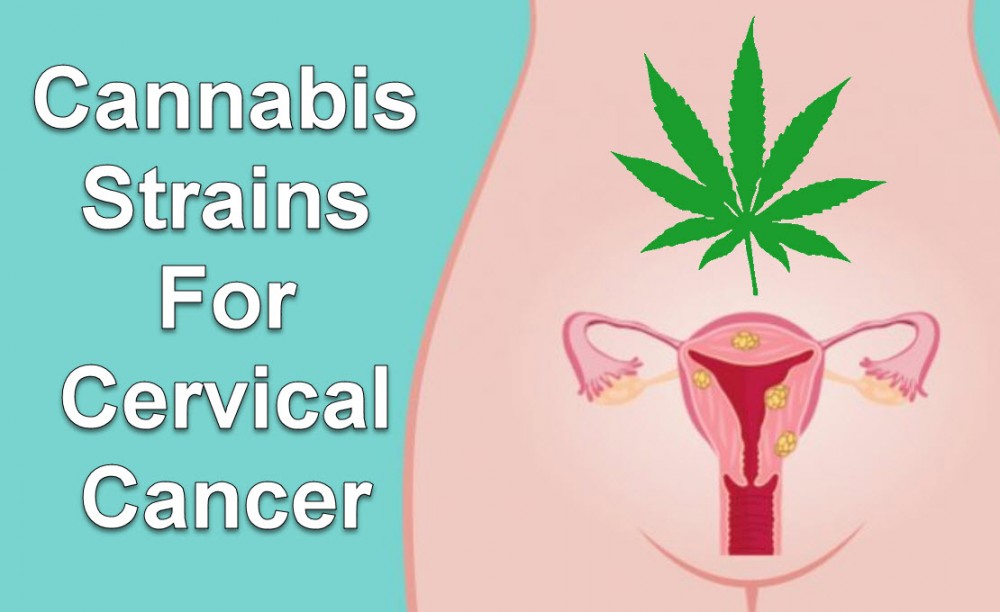Cannabis and Cervical Cancer Research
Cervical cancer occurs when cancerous cells grow in the cervix, which is found in the lower area of the uterus leading into the vagina. If diagnosed early, cervical cancer can usually be treated.
In the past, cervical cancer was a leading cause of death in American women, although through education and widespread awareness of the importance of Pap tests these figures have reduce dramatically. However, in other countries millions of women have no access to these kinds of tests especially in South Africa, which currently has the highest prevalence of cervical cancer in the world.
Most cases of cervical cancer are caused by the human papillomavirus (HPV), which is spread through sexual contact with an affected individual. There are many different forms of HPV, and not all of them cause cervical cancer. Some of them are manifested through genital warts but in many cases they don’t show any symptoms at all.
HPV is extremely common; it’s normal for adults to get a case of HPV at some point in their lives. In some cases HPV goes away on its own although in extreme cases the genital warts may lead to cervical cancer. To diagnose HPV early it’s critical for women to get regular Pap smear tests done, which can tell if there are any changes in cervical cells before they become cancerous.
Symptoms of cervical cancer include vaginal bleeding, pain during sex, vaginal discharge, and pain in the pelvis. Treatment of cervical cancer varies depending on the severity; in early stages surgery may be successful although it will remove pelvic lymph nodes and may end up removing ovaries and fallopian tubes, which will mean that getting pregnant will no longer be possible. For late stage cervical cancer, chemotherapy and radiation therapy are also recommended however these don’t always work and have serious side effects.
How Can Cannabis Help?

A recent study conducted in 2016 by researchers at the North-West University in Potchefstroom, South Africa, they found that CBD, the non psychoactive compound in cannabis possesses powerful anti-cancer properties. During the course of their research they discovered that cannabis was effective on inducing cell death in cancer cells, a process known as aptosis.
Another study published in Current Clinical Pharmacology revealed that cannabis worked in preventing cancer and reducing inflammation. Another paper in the Oncology Hematology journal discussed the anti-cancer properties of cannabis, explaining that the cannabinoids in the plant were helpful in reducing tumor growth during in vitro experiments (test tube or petri dish).
Dawsolene’s Story

Dawsolene M. Burrel was 26 years old, a mother of three, when she suddenly woke up one day in excruciating pain that left her unable to stand up. The pain was getting worse gradually, and she realized she hadn’t gotten per period in several months. Her husband drove her to a hospital, where they performed a battery of tests.
Dawsolene was diagnosed with stage 4 cervical cancer, and the doctors told her that she needed a hysterectomy combined with chemotherapy and radiation. Dawsolene’s father is a pastor; so she decided to forego surgery and pray. The prayers worked; her body got rid of the tumor and it was undetectable.
However, 6 months later, the doctors discovered another tumor the size of a grapefruit. She underwent around 39 surgeries in total, and took many different medications to fight cancer. Dawsolene was spending more time in the hospital, going through several surgeries, treatments, and medications.
Dawsolene went into a complete lifestyle change: she exercised, ate healthy, and reduced her exposure to stress…. But she also began taking medical cannabis. In February 2016, she was able to replace 14 pills thanks to her cannabis use, including Valium, Toradol, Dilaudid, and Percocet.
In January of 2017, Dawsolene celebrated 30 months of being cancer free. At 48 years old she was able to receive a clean bill of health for the first time in several years. She’s also been free of pharmaceutical medications for 11 months now.
In an interview, she states: “This month makes it the longest I’ve been in remission and I attribute it to Christ, Revelation 22:2 which states the leaves of the tree were the healing for the nations,” and cannabis.
Have you used cannabis to treat cervical cancer? Share your story with us in the comments below!
OTHER STORIES YOU MAY ENJOY..
WHAT STRAINS WORK FOR CERVICAL CANCER, CLICK HERE.
OR..
CURE CANCER WITH CANNABIS OIL THC, CLICK HERE.








